Disclaimer: I received an Endure Strong Coaching Package to review as part of being a BibRave Pro. Learn more about becoming a BibRave Pro (ambassador), and check out BibRave.com to review find and write race reviews!
Since taking up running four and a half years ago, I have watched myself progress from my first half marathon of 2:57 (Bull City Race Fest 2015), to my current PR of 2:09 (Bull City Race Fest 2016). My time has since fluctuated from that race, but I’ve also started to steadily increase my distances. What it brought me to believe though, was that if I put in the work, I would be able to see actual results. It’s one of the many things that I love about running!
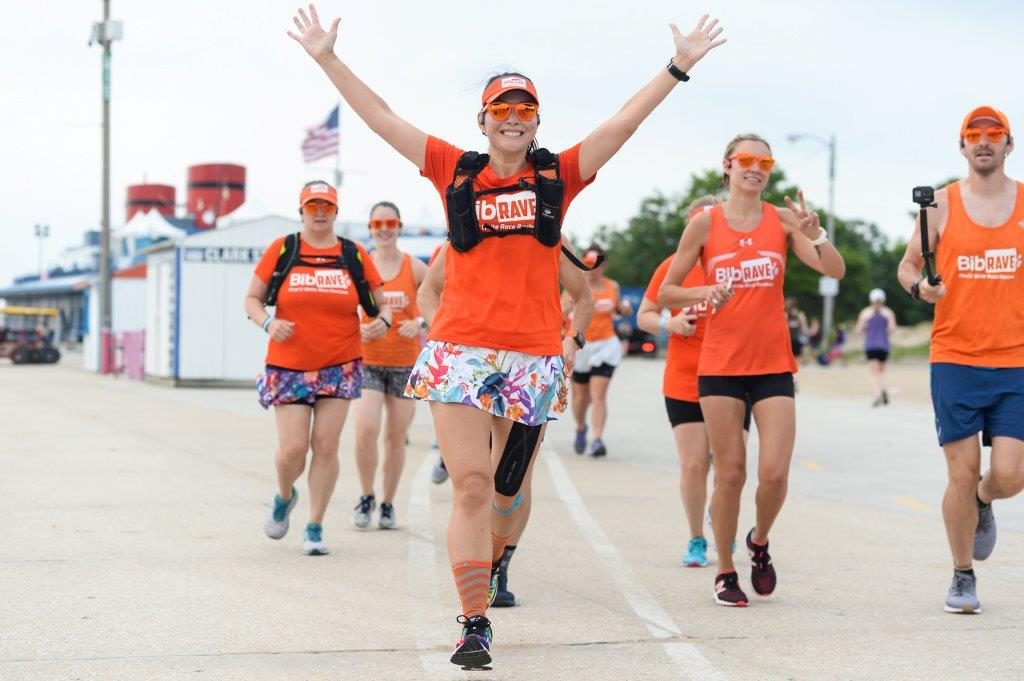
But here’s where the challenge came in: I did that progression without any sort of plan. I just… well… ran. A lot. I did about 10 races of varying distances within that year, continuing to just get really comfortable with the long runs that come with training for a half marathon. And it felt great and so satisfying! But at some point after that year, I stopped getting faster. Sure, I’ve now completed four full marathons and one ultra, but I feel like I’ve started to move in the opposite direction as a result. So I started to entertain the idea of getting a coach. I had a few concerns in doing so:
- I’m very much a novice runner. Should someone like me even entertain the idea of a coach?
- How do I work a coaching plan in with my full-time job, and the fact that I teach group fitness on the side. I teach anywhere from 2-4 classes a week.
- And obviously the most important piece of this puzzle, how would I then juggle all of this to fit in with my family? I have two young children. Ultra training took me away from home A LOT and burned me out a bit. I need to to be manageable.
As a result of these thoughts and conversations with other running friends and peers, I uncovered the answers to most of those questions. Yes, a novice runner such as myself could absolutely get a coach. They are there for us to improve as runners, so why wouldn’t we? It would just be a matter of getting the right one, to help me achieve my specific goals. I also need to find one who can cater a routine to my crazy schedule, and understand the balance needed to juggle my home life, work life, and fitness goals.
When BibRave reached out to the Pro team asking who would be interested in trying out a coaching program with Olympian Jared Ward, they probably heard the ‘swoosh’ of my hand shooting up to be picked from across the country. I was practically jumping up and down at the opportunity. Their caveats? They wanted to find people who had busy schedules to coordinate around a coaching program. This needed to be a realistic experience for an honest review. Also? You had to be training for a Summer race. Oof. I wasn’t planning on that. I try to avoid Summer races as much as possible as training in North Carolina in the middle of it is the pits. But for this opportunity… well, maybe I could go ahead and pick out a race. This request thankfully came through around the same time as the Chicago BibRave Summit announcement, so I decided that I could totally run a flat, cool (read the irony in that as I had Chicago so, so wrong in my mind) race and try to PR it in the middle of the Summer. My half marathon pace times had been ranging in the 2:20ish zone, but my fastest to date was 2:09… I really want that sub 2.
So first things first, I decided that if I was selected, I would be coached for a half marathon PR. I have several half marathons coming up, and New York Marathon in the Fall, but given my half marathon history and what I thought I could reasonably fit in for an aggressive training schedule, I would focus on that distance for a chance at success. While a sub 2 would be ideal, anything under 2:09 was my target. Lucky for me, I received the acceptance letter just 12 weeks out from my race. This was going to be a tight timeline, but I had just rolled out of doing my first ultra marathon, so I knew I could hit the mileage.
The program started with communications from our coach, Andrew Webb. He handles the day-to-day interactions on the board, answers the majority of our training questions, and helped us pick the plans that worked for our targets. I decided to go with the Intermediate plan with a peak of 35 weekly miles. I think part of my downfall may have been mistaking how much time I would have for running based on the miles I was logging for an ultra marathon. Well, that and again, remembering that I’m getting in a considerable amount of cross training and strength training in already. I need to remember to find that balance…

So I jumped right in to my training! I was totally committed, participating in the Final Surge message boards, posting on the main social wall, and documenting every last aspect of my runs within my run log. My Garmin Forerunner sync’d perfectly with the Final Surge app, so I could easily track my progress and go to the team for any questions or concerns. Alas, right off the bat I noticed some tweaks needed to be made.
First things first, I generally have to do my long runs on Sunday. I teach PiYo most Saturdays and it’s early enough that getting in my long run mileage would be tight, especially if I have to teach right after (doing a bunch of squats after a long run isn’t my favorite way to spend a Saturday morning). The problem became that Monday’s were my rest day according to the pre-populated schedule… but those are also days that are actually really good for me to get in a run because I usually teach again on Tuesday and Wednesday. So I was stacking my running workouts with days that I might be teaching one, and sometimes even two classes.
Within a couple of weeks after beginning the program, I started to wear down. I was adamant about sticking with the routine 100%. But unfortunately, I had gotten sick shortly after my 50 miler, and as my body became more and more exhausted, that sickness returned with a vengeance. I checked in to urgent care because I had a cough that I could not shake. I couldn’t make it down my street without aggravating it. It took me out for a full two weeks before I finally went in for another urgent care appointment and we realized that I might have underlying health issues that hadn’t been diagnosed before. Ultimately, this ended up with me tracking the foods I had been eating to identify sensitivities and triggers. This seemed to do the trick, but I had almost a full month from start of the cough to a place where I could begin to workout in earnest again. It was frustrating, disheartening, and I was so down on myself. I also didn’t know how to jump back in. Thankfully, a couple of things happened…
First, I reached out to Andrew to see how to adjust my plan. Some of the workouts were really aggressive and would trigger a coughing fit just thinking about the effort that was going to go into them. Within a few days, he replied and encouraged me to work on hitting the mileage goals rather than the workout efforts. Once I started to feel better I could up my intensity. That seemed like a reasonable route to take, and I had about 6 weeks of the program left. I knew I would just need to adjust my goal and expectations overall.
Second, it seemed as though this was the season of sickness, because I was reading other people posting about similar setbacks, summer colds, etc. So much so that Jared covered some of this discussion within his bi-weekly coaching call. It was really reassuring to know that these things happen. I mean, we all know they do, but it’s hard when you get in that mental space of wanting to do your workout, but knowing your body physically can’t at the moment. I needed those pep talks and his coaching calls seemed to come at the perfect time.
In fact, the coaching calls were probably my favorite part of the program. We can feel so alone sometimes in our own struggles: why is it such a challenge to hit my workout run paces? What do I do if I need to adjust a pace? I missed a workout (or a few), how do I get back on track? Do I need to make them up again? How can I improve my running form? The list goes on, but Jared had our backs. You could submit questions ahead of time, but if you were able to attend the live call, you could submit them in real time and Jared would either answer them, or follow up (for example, he gave links to examples of A skips and B skips that were discussed one evening in a call).

The coaching plan is a competitive price at $39.99 a month. This gets you access to Final Surge and the team board, social wall, and contact with Andrew and (I believe) the ability to reach out to Jared. I never did the latter as I kept my posts to the message board and the social wall, but again, you can submit questions during the coaching calls to have that direct interaction with him and the team. The message board wasn’t very active as they seemed to still be working on the consistency of posting. They shared some weekly recipes, training tips, etc, and you could create your own posts. I had looked into other coaching programs prior to this, and this price point seems to generally be the base line and they only go up from there depending on the level of interaction that you have with the coach and how much they are actually providing (some give you meal plans, read through your journals and provide their comments, etc).
The initial Endure Strong program is pretty cookie cutter. Essentially you sign in to setup your account, pick your goal distance (from being new to running, setting a base, or goal distances up to a marathon), and choose from an assortment of plans to meet your level. Ex. Beginner half marathon training plan with a peak of 30 miles a week. You could see examples of the plan mileage and workouts, and once you selected your program, it would populate in your training log. Final Surge did not import the workouts into my Garmin; I had to do that manually, but I believe that is an overall Final Surge feature and not specific to the program Endure Strong uses.
Overall, I thought the Final Surge app was a great tool to use for the training. And as mentioned before, you can then customize and adjust your schedule. It was easy to move things around or plug in new workouts. My biggest issue was personally not wanting to make modifications. Once the schedule was set, I didn’t want to tweak it. I like lists and crossing things off of them so moving or deleting them almost felt like failure to me. Understandably, this is my own problem, and I needed to set my expectations early on as I worked with a coach and this program. I think this experience would definitely help me in the future in being more realistic in my training plan and how I catered it to my actual life and daily schedule.

Based on my experience, I think the Endure Strong Coaching program would work well for someone who is clear on what their goal is and knows that they can commit to the 5-6x a week of running and/or training. You need to be open to reaching out directly for any changes to your program and be proactive in your communications. If they don’t hear from you, they assume things are good. I didn’t reach out to them at times when I probably should have. Ultimately, the topics came up in the coaching calls or I saw them on the social feed, but I could have reached out more if I was eager for that feedback.
In addition, I think if you need more guidance in your training: you know you have this target but you don’t quite know how to get there or you want the framework to get you started, then this would be a great option. It gave me some really useful tips for training, and I learned a lot about how the coaching process and workouts really break down. Before doing this program, I just ran. Sure, I pushed myself harder on some runs than others, but I didn’t have set workouts, I kinda relied on luck and environmental factors to play in my favor. Through this program, I learned about strides, tempo runs, my different pace zones and thresholds, track intervals, etc.
This program definitely pushed me, but I just wasn’t where I needed to be in order to hit my initial target. I feel like ended with a realistic expectation of where to now go from here and how I can continue to build my foundation so that I can continue to progress going forward. I also believe that time was not on my side. Having the setback from my health was one thing, but I only had 12 weeks to hit a lofty goal. I think a more realistic approach would have been 16 or even 20 weeks, but I had some time constraints of when this needed to be completed by.
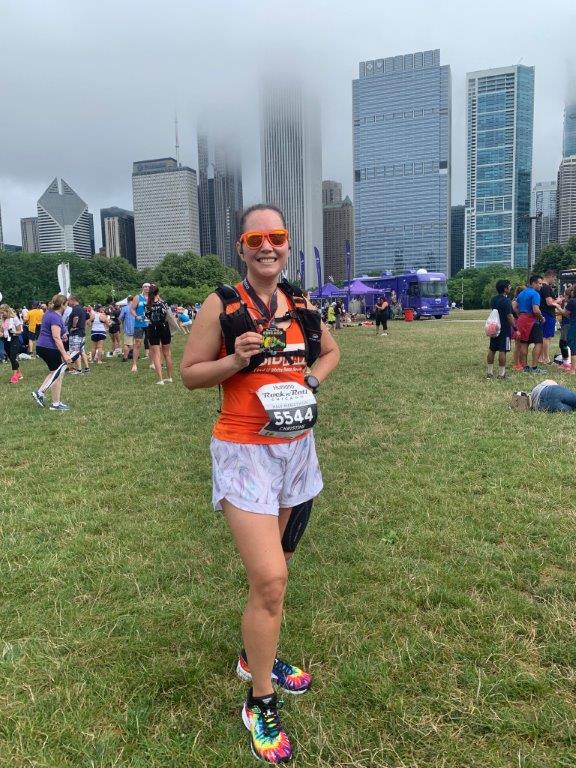
Would I use this program again? I would, but only with the proper amount of time to complete it, and an up front discussion with them about my schedule and how to incorporate my cross training/teaching in with the running requirements. I would probably bump myself down to a beginner plan or just cut a day of running out because of the extra toll I’m already adding to my body. I know I can’t do a cookie cutter plan and they are there as a resource, but you need to be proactive in your communication to them about your customizations. I would love to see the Endure Strong team up their communications on the message board and social wall. Sometimes waiting the two weeks between coaching calls, things can feel quiet (again, unless you are proactively initiating conversation on Final Surge). You can tell they are growing and they are starting to see successes and the results trickle in from their athletes, but that engagement with their team is also part of what would drive me to participate more with the coaching plan as a whole.
If you want the full scoop on my goal race at Rock N Roll Chicago, click here.
Also, something as personal as coaching will be different for everyone. Be sure to check out the additional BibRave reviews as listed on my Gear Review page.
If you want more information on the Endure Strong Coaching program, check out their website to see the various training plan and coaching options in working with Jared Ward and his team.

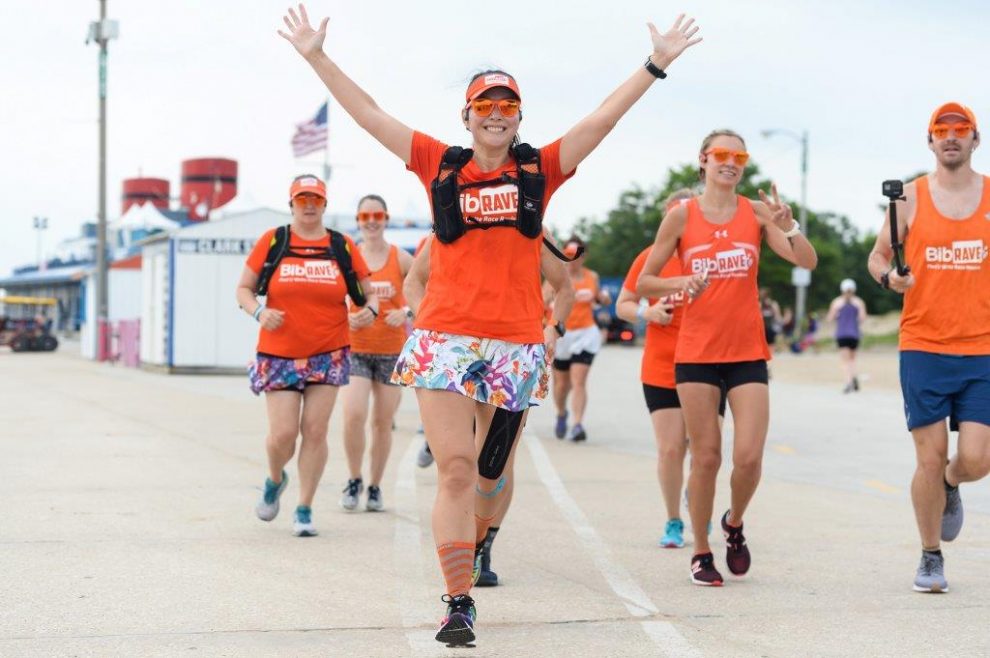
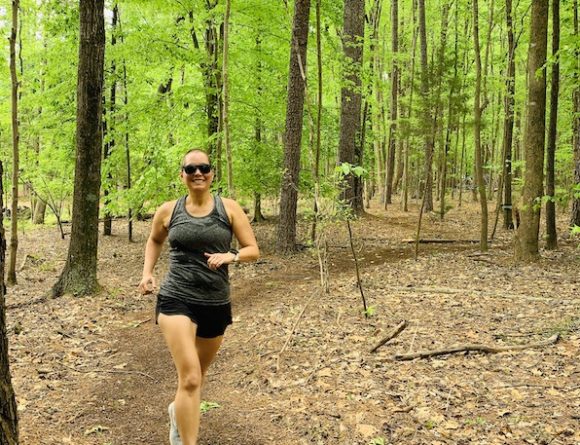
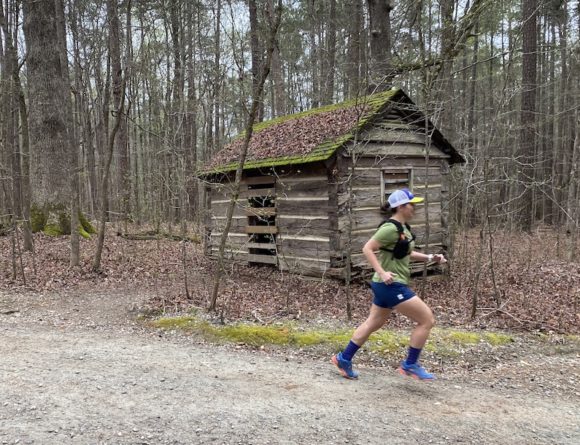
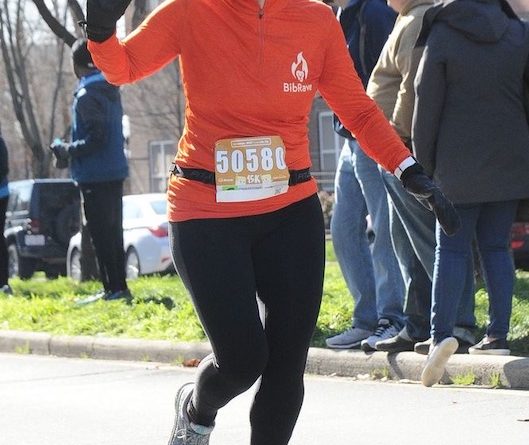
2 Comments
Great review! I’m sorry you didn’t hit your A goal for Chicago but I think you’re right in that you had a really tight window in which to train. And you were sick for much of that too! Great job in Chicago. You pulled off a great race and I’m sure you are well on your way to hitting that sub-2 goal!
July 28, 2019 at 9:02 pmThank you! It definitely gave me the drive to really push for it now! Just need to figure out realistic goals to proceed and races to help achieve them! I have some ideas, just figuring out next steps. 🙂 I’m still so proud of you though! You worked so hard and that Chicago weather was tough! You were in beast mode!
July 28, 2019 at 9:42 pm